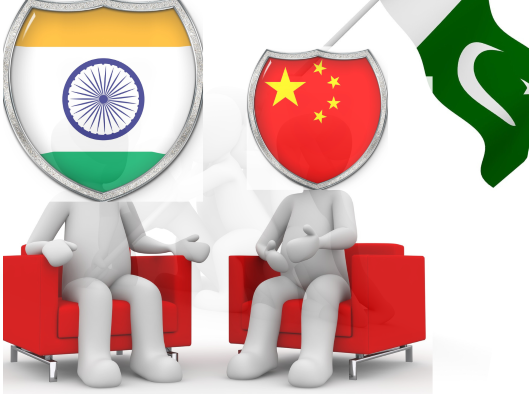
China has urged India and Pakistan to maintain calm and exercise restraint following their ceasefire agreement
Background: India-Pakistan Conflict & Ceasefire Agreement
China urges India and Pakistan – India and Pakistan have been engaged in heightened military tensions following the April 22 Pahalgam terror attack, which led to cross-border drone strikes and missile exchanges. In response, both nations agreed to a ceasefire on May 10, halting military actions across land, air, and sea.
China has diplomatically intervened, encouraging both parties to exercise moderation and prevent any escalation, as doubts persist regarding Pakistan’s adherence to the truce.
China’s Diplomatic Outreach
Chinese Foreign Minister Wang Yi has spoken to India’s National Security Advisor Ajit Doval and Pakistan’s Deputy Prime Minister Mohammad Ishaq Dar, emphasizing the need for a lasting ceasefire.
During his conversation with Doval, Wang stated:
- China is in favor of an all-encompassing ceasefire between Pakistan and India.
- Beijing opposes terrorism in all its manifestations and condemns the Pahalgam terror incident.
- Asia’s peace and stability have been earned and ought to be maintained.
Wang also addressed the leadership of Pakistan, imploring them to put long-term stability first while maintaining territorial integrity and sovereignty.
India’s Response to China’s Intervention
India has maintained that war is not its choice, but counter-terrorism actions were necessary following the Pahalgam attack. NSA Ajit Doval reiterated that India remains committed to the ceasefire but expects Pakistan to uphold its end of the agreement.
Meanwhile, Indian officials have questioned China’s neutrality, citing Beijing’s historical support for Pakistan in diplomatic matters.
Pakistan’s Stand on the Ceasefire
Pakistan’s Deputy PM Ishaq Dar has assured China that Islamabad is committed to the ceasefire, but warned that any violations of sovereignty will be met with a response.
Pakistan has also sought international mediation, with China, UAE, and Turkey playing advisory roles in the ongoing discussions.
Global Reactions & Future Implications
The ceasefire agreement has sparked mixed reactions:
- China has positioned itself as a mediator, urging both nations to maintain peace.
- The US has welcomed the ceasefire, but remains cautious about Pakistan’s actions.
- India remains skeptical of external mediation, preferring direct diplomatic engagement.
What’s Next? Future Implications of China’s Involvement
China’s diplomatic outreach could lead to:
- Stronger regional cooperation in counter-terrorism efforts.
- A more structured ceasefire agreement, ensuring long-term stability.
- Potential diplomatic negotiations beyond military discussions.
However, if Pakistan continues ceasefire violations, India may escalate its military response, leading to renewed tensions.
Stay informed with the latest news and updates – only on Rapido Updates.
1 thought on “China urges India and Pakistan to maintain the ceasefire Amid escalating tensions”